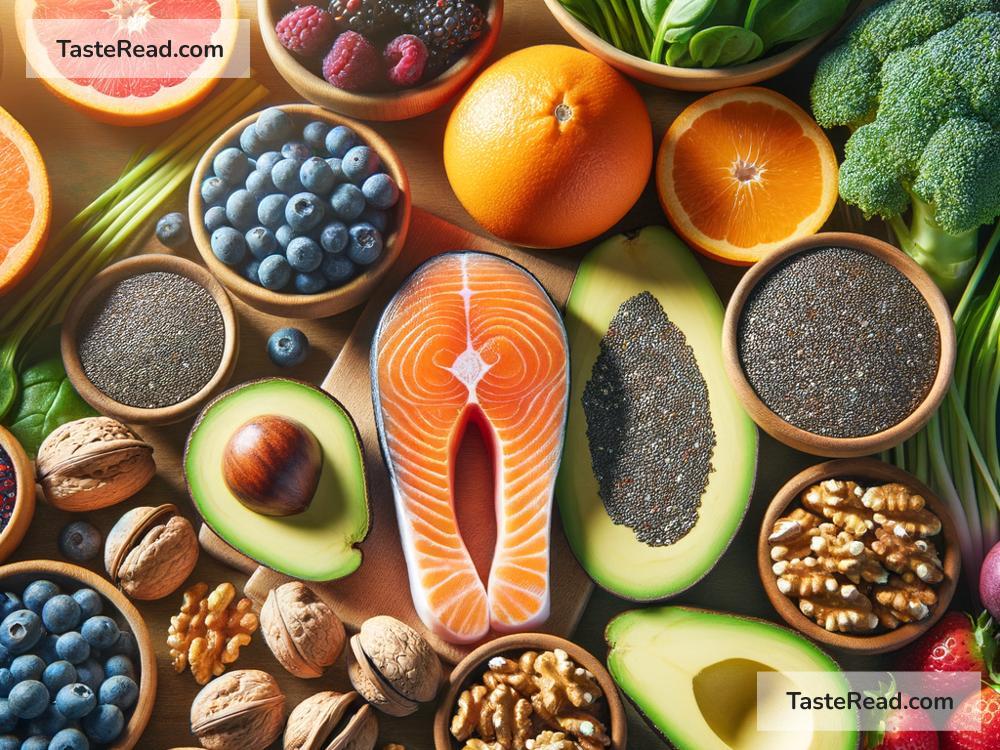Foods That Improve Endocrine Harmony: A Guide to Better Hormonal Health
Your body’s endocrine system is like the engine that keeps it running smoothly. This complex network of glands produces hormones that regulate everything from your mood to your energy levels, digestion, and even growth. When your endocrine system is functioning well, you feel balanced, energetic, and healthy. But when things go out of sync, it can lead to issues like fatigue, stress, irregular periods, weight gain, or even long-term health problems.
Luckily, eating the right foods can help your endocrine system function optimally and promote hormonal balance. In this blog, we’ll explore simple, nutrient-packed foods that can improve your endocrine harmony.
What is Endocrine Harmony?
Endocrine harmony refers to the state where your hormones are balanced, and your glands (like the thyroid, adrenal glands, pancreas, and ovaries/testes) are working efficiently. Achieving this balance is important for healthy metabolism, fertility, sleep, and overall well-being.
The good news? Food plays a major role in supporting this balance. Let’s delve into some of the best foods for endocrine health.
1. Fatty Fish
Fatty fish like salmon, mackerel, and sardines are rich in omega-3 fatty acids. These healthy fats reduce inflammation in the body, which is critical for keeping your hormones balanced. Omega-3s also support adrenal health and help regulate stress hormones like cortisol.
Why it helps: Many endocrine-related issues come from inflammation. Omega-3 fatty acids calm the inflammation, making it easier for your glands to function optimally.
Add it to your diet: Grill some salmon for dinner or add canned sardines to a salad for an easy and nutritious meal.
2. Leafy Greens
Vegetables like spinach, kale, and broccoli are packed with nutrients that support the thyroid gland and liver, both of which are key players in hormone regulation. Leafy greens are rich in magnesium, which helps control stress hormones and supports sleep. They’re also full of fiber, which promotes gut health—a critical factor in hormone balance.
Why it helps: Hormones rely on your liver to detoxify and your gut to absorb the nutrients you consume. Greens keep both organs healthy and functioning.
Add it to your diet: Blend spinach into a smoothie or sauté some kale with olive oil and garlic.
3. Nuts and Seeds
Nuts and seeds, such as almonds, walnuts, sunflower seeds, flaxseeds, and chia seeds, are loaded with healthy fats, protein, and fiber. They also contain important minerals like selenium, zinc, and magnesium, which are essential for thyroid and adrenal health.
Flaxseeds and chia seeds are particularly beneficial for balancing estrogen levels in the body. These seeds contain lignans, which act as plant-based estrogen and can promote harmony during situations like PMS or menopause.
Why it helps: Healthy fats are building blocks for hormone production, and the minerals help support proper gland function.
Add it to your diet: Snack on a handful of almonds or sprinkle ground flaxseeds over yogurt or oatmeal.
4. Avocados
Avocados are a superfood for endocrine health. They’re rich in monounsaturated fats (healthy fats) and full of vitamins like B6, which plays a role in regulating stress hormones. Avocados also contain potassium, which helps balance fluids and electrolytes in your body.
Why it helps: Healthy fats and vitamins from avocados help your glands produce hormones more efficiently. Potassium supports adrenal gland function, which helps with energy levels and stress.
Add it to your diet: Spread mashed avocado over toasted whole-grain bread or slice it onto a salad.
5. Whole Grains
Whole grains like oats, quinoa, and brown rice are loaded with fiber, vitamins, and minerals that help stabilize blood sugar levels. When your blood sugar is stable, your pancreas doesn’t need to pump out excess insulin—a hormone that can easily go haywire if your diet leans toward sugary foods.
Why it helps: Stable blood sugar levels are key to preventing hormone imbalances, particularly those related to insulin and cortisol.
Add it to your diet: Replace white bread and pasta with whole-grain alternatives like quinoa or brown rice.
6. Fermented Foods
Probiotic-rich foods like yogurt, kimchi, sauerkraut, and kefir help maintain a healthy gut microbiome, which is crucial for hormone balance. The gut and hormones are deeply interconnected; a healthy gut can improve estrogen metabolism and calm inflammation associated with endocrine problems.
Why it helps: A balanced microbiome supports better hormone regulation, digestion, and nutrient absorption.
Add it to your diet: Enjoy a small dish of yogurt during breakfast or sip on kefir as a snack.
7. Berries
Berries like strawberries, blueberries, and raspberries are loaded with antioxidants that help reduce oxidative stress in the body. Oxidative stress can disrupt hormone production and damage the glands in your endocrine system. The fiber in berries also supports gut health, boosting overall hormone harmony.
Why it helps: Antioxidants protect your glands and support hormonal balance, while fiber keeps your digestion regular.
Add it to your diet: Snack on fresh berries or blend them into a smoothie.
8. Cruciferous Vegetables
Vegetables like broccoli, cauliflower, and Brussels sprouts contain compounds called indole-3-carbinol, which help detox excess estrogen from the body. These veggies are particularly beneficial for women dealing with estrogen dominance—a condition that can cause heavy periods, mood swings, or weight gain.
Why it helps: Detoxifying excess hormones helps achieve a balanced endocrine system.
Add it to your diet: Roast Brussels sprouts in olive oil or steam broccoli as a healthy side dish.
Final Thoughts
Your hormones impact almost every aspect of your health, so taking care of your endocrine system is vital. By incorporating these nutrient-dense foods into your daily diet, you can help your hormones work together in harmony. Try to eat a variety of these foods each day, drink plenty of water, and minimize processed foods and sugar to give your body the best chance for balance.
Remember, small changes in your diet can make a big difference in how you feel. Take charge of your health one bite at a time!


